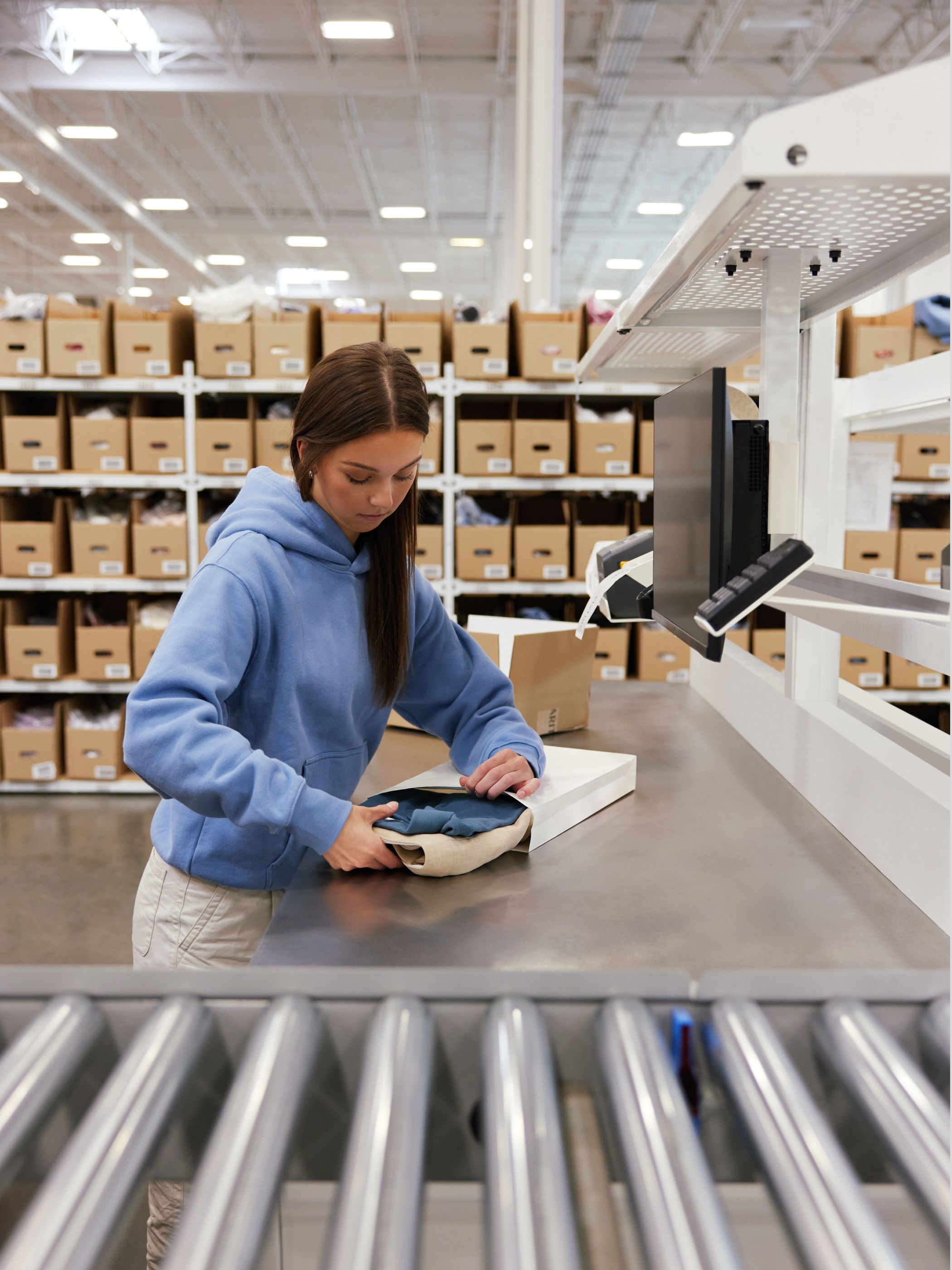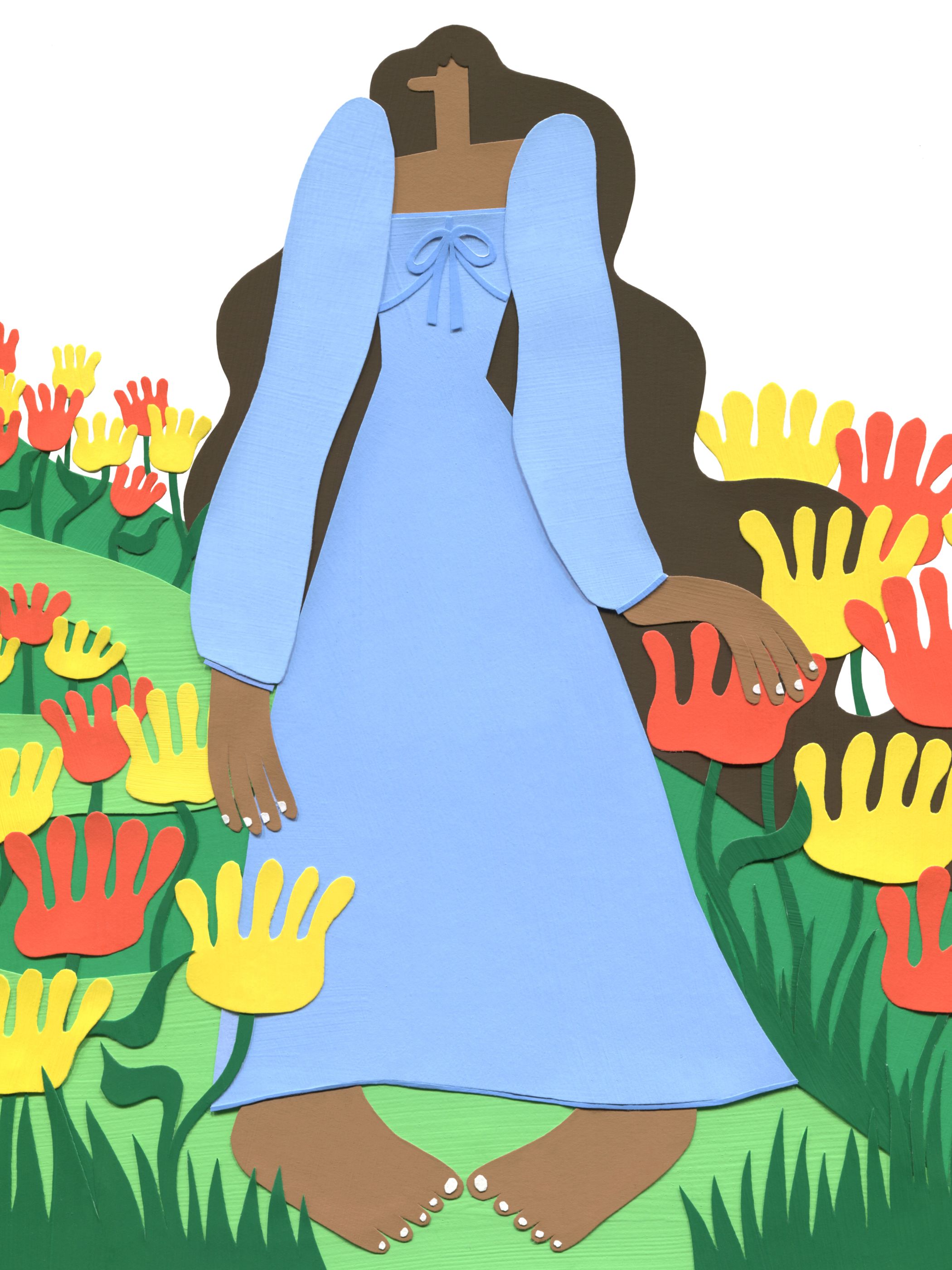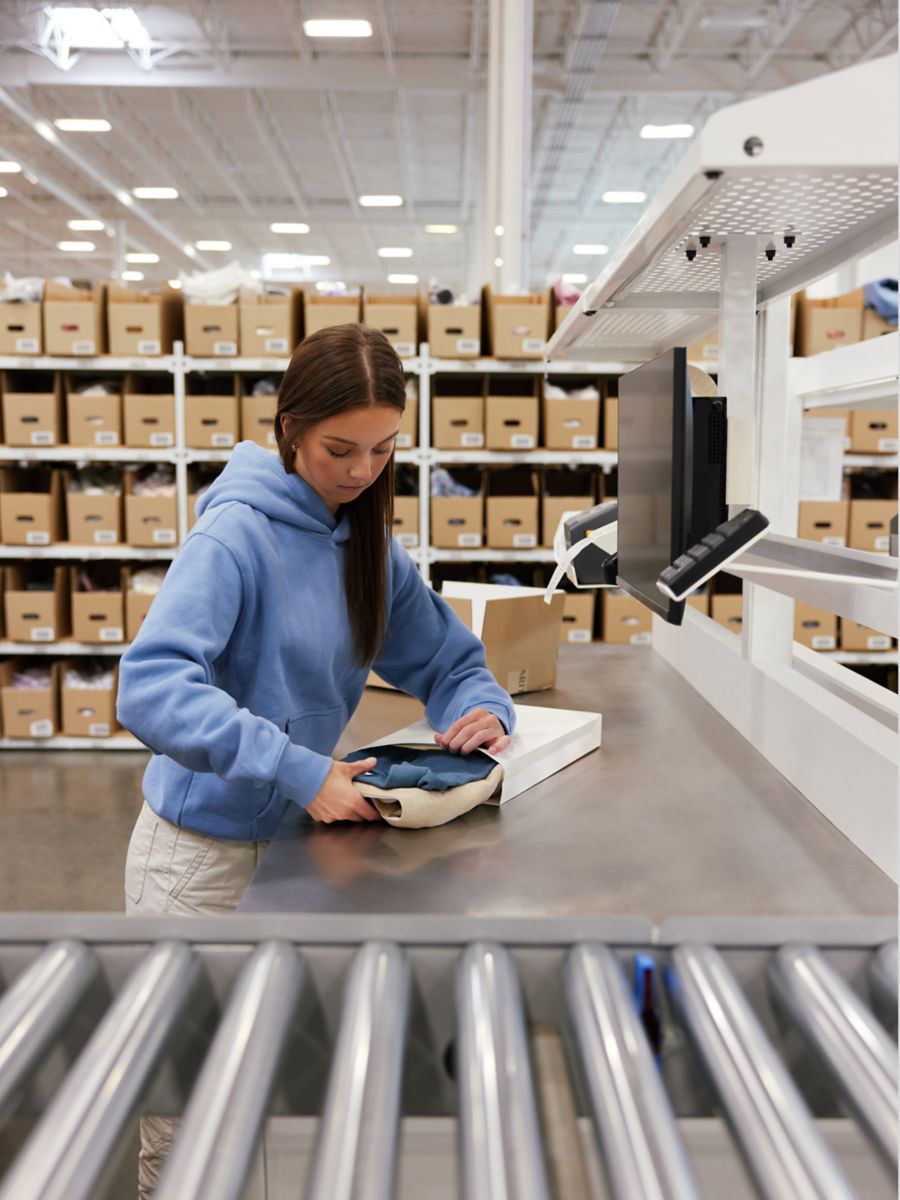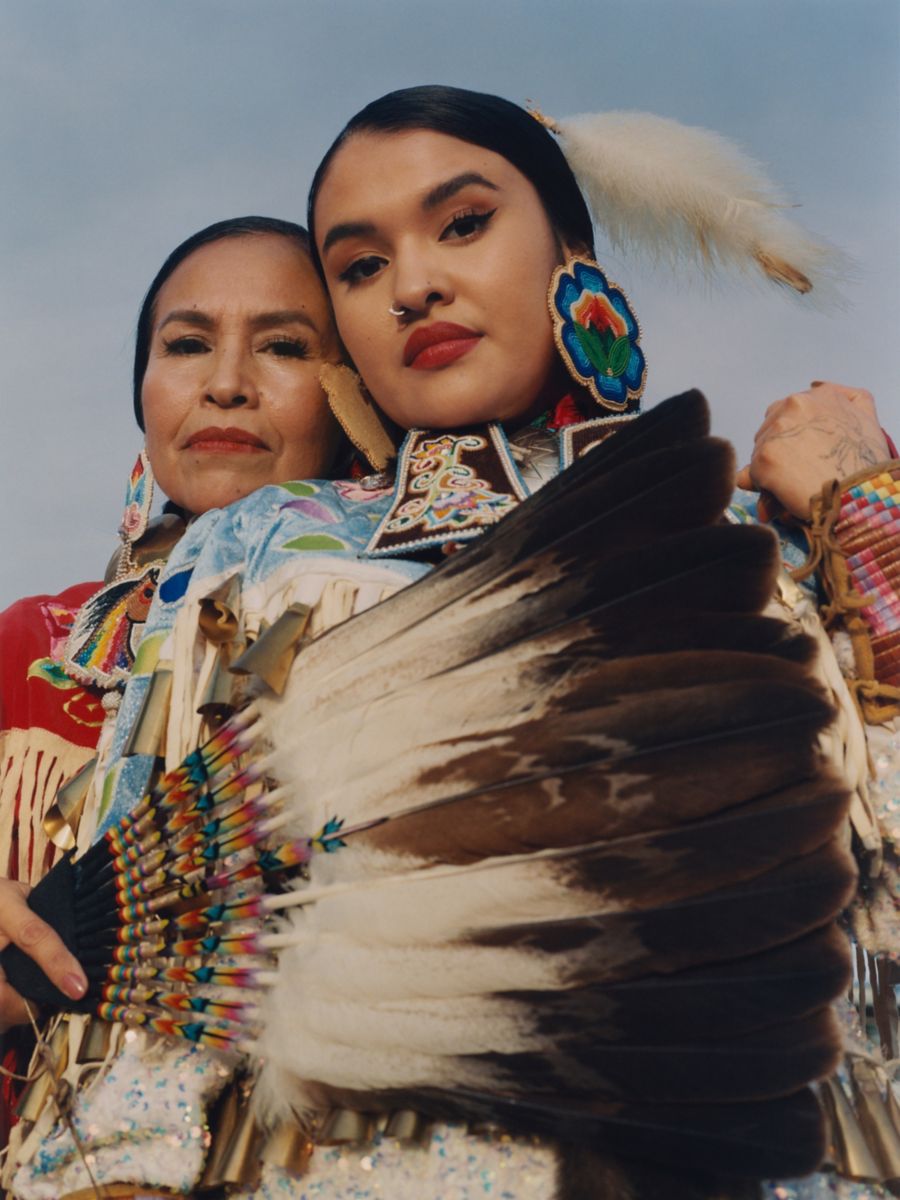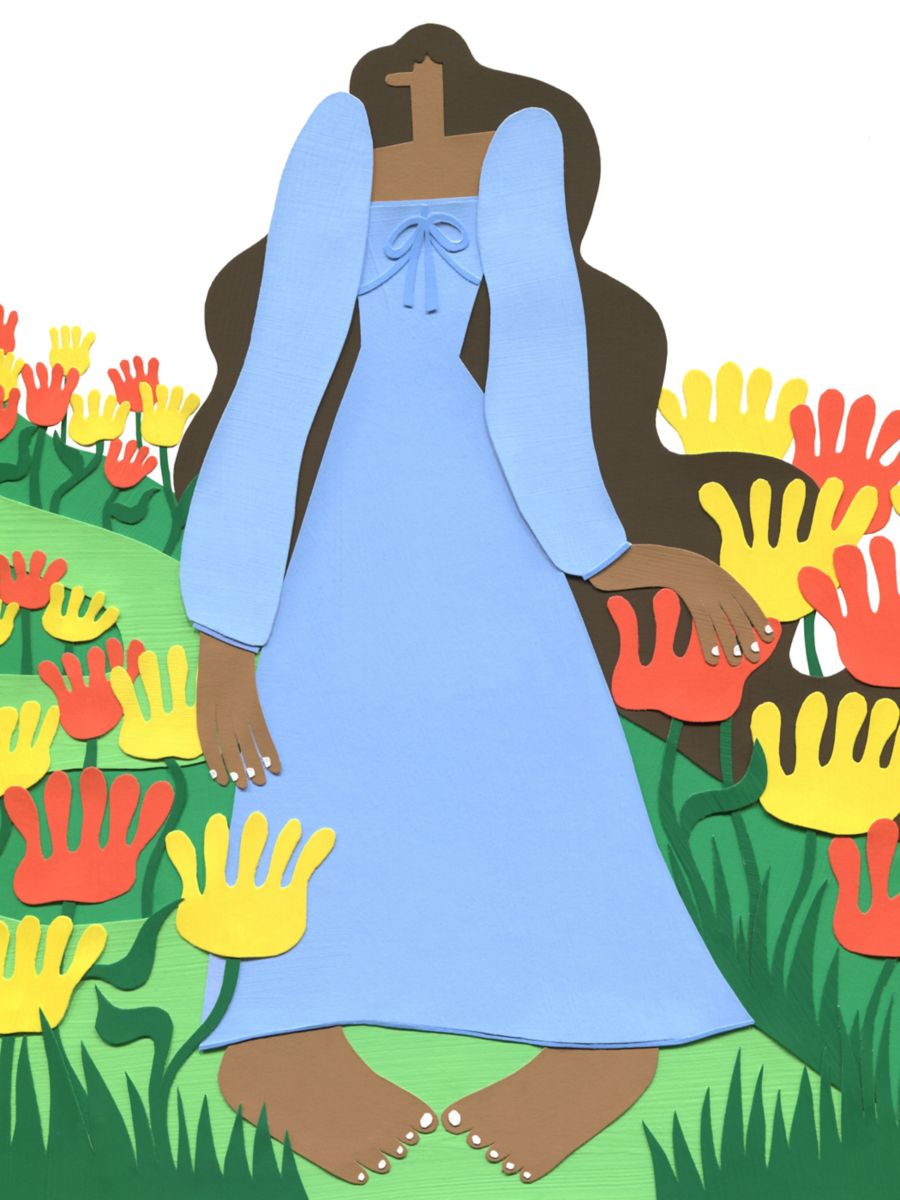
We’re committed to creating positive social impact in our supply chain — and to continuously expanding that impact.
-
Making our products ethically and responsibly
-
Upholding human rights
-
Advancing economic security
-
Amplifying workers’ voices

Environmental and social performance feedback is provided to the facilities we work with through sourcing and manufacturing supplier scorecards. This process ensures our suppliers understand the importance of sustainability in our sourcing strategy, as well as how it’s incorporated into our decision making.
Annually, we ask our suppliers to provide feedback through a survey on how we work with them across multiple dimensions. We look forward to deepening these relationships and gathering information on our practices to see how we’re performing and where we have opportunities to improve.
For more information on our supply chain transparency, please see our page covering the California Transparency in Supply Chains Act.
Foundation

We partner with non-profit organizations and industry experts specializing in labour rights and supply chains to regularly review and evolve our Supplier Workplace Standards Program. Through this program, we’re able to integrate sustainability into our decision-making from the very start.
-
Employment practices
-
Labour rights
-
Working hours
-
Wages
-
Freedom of association
-
Health and safety
The Supplier Code of Conduct, which is signed by our suppliers, aligns with leading standards in the fashion industry, including established international frameworks such as the International Bill of Human Rights, the International Labour Organization’s Fundamental Principles and Rights at Work and the Ethical Trading Initiative Base Code.
We’ve conducted a comprehensive Human Rights Impact Assessment across our value chain — the results inform our programming and guide us as we update our mitigation strategies to focus on addressing the most critical human rights issues.
Throughout this work, we continuously review our human rights impact and adjust as needed.


Relationships

Through Better Work’s supplier engagement services, their facilities gain access to assessment processes, advisory services and training. Better Work Advisors work in partnership with facilities on an on-going basis to build long-term, sustainable solutions to improve working conditions. Experienced in local and national laws, Better Work Advisors establish trusted relationships with facilities and foster strong, effective dialogue between workers, trade unions and management.
Our Focus

Our Reach

Economic Security

-
Working with suppliers to ensure our Supplier Code of Conduct, human rights and best industry practices are upheld and respected
-
Collaborating with appropriate stakeholders and experts to develop strategies that advance economic security in our supply chain
-
Reviewing our practices and encouraging two-way dialogue with our suppliers to collaboratively develop a roadmap toward economic security
We take a data-driven approach to information gathering and wage analysis, which is part of deepening our understanding of wages throughout our supply chain. With this information, we’re building wage ladders throughout our supply chain and defining next steps.








